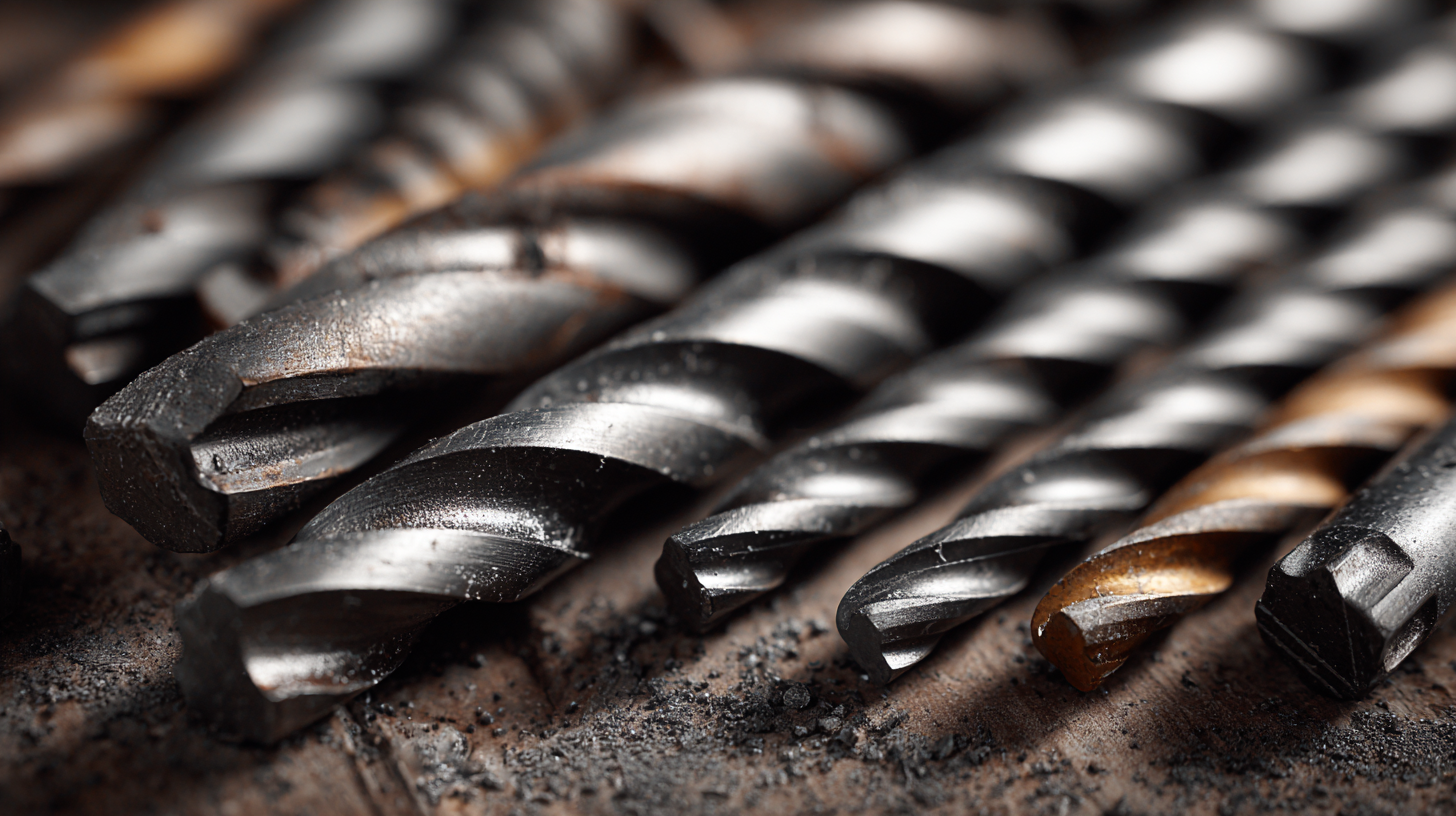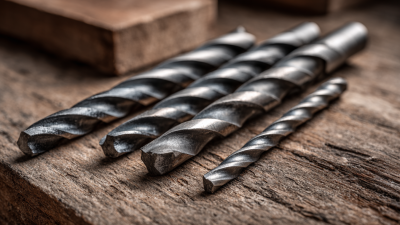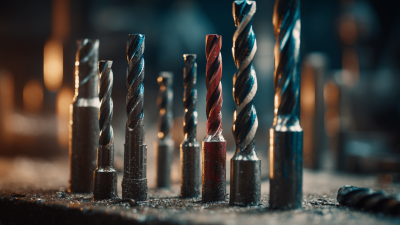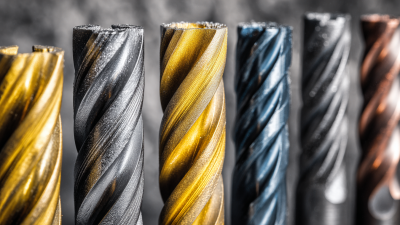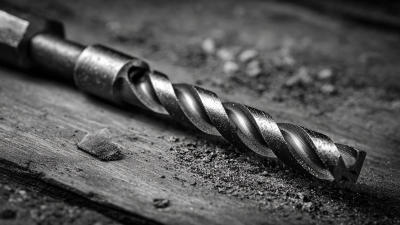FREE SHIPPING ON ALL BUSHNELL PRODUCTS
Leave Your Message
In the construction industry, the choice of drill bits significantly influences both operational efficiency and material selection, playing a critical role in project success. According to a report by the Associated General Contractors of America, optimal tool selection, including the right drill bits, can improve productivity by up to 30%. Furthermore, research from the National Institute of Standards and Technology indicates that improper drill bit selection can lead to increased material waste, which not only escalates costs but also impacts sustainability efforts. As projects become more complex, the demand for specialized drill bits, tailored for various materials such as concrete, metal, and wood, is on the rise. By understanding the impact of drill bits on efficiency and material compatibility, construction professionals can enhance their strategies, reduce downtime, and ultimately achieve better project outcomes. This guide will delve into the nuances of drill bit technology, examining how these tools can optimize performance in the ever-evolving landscape of construction.
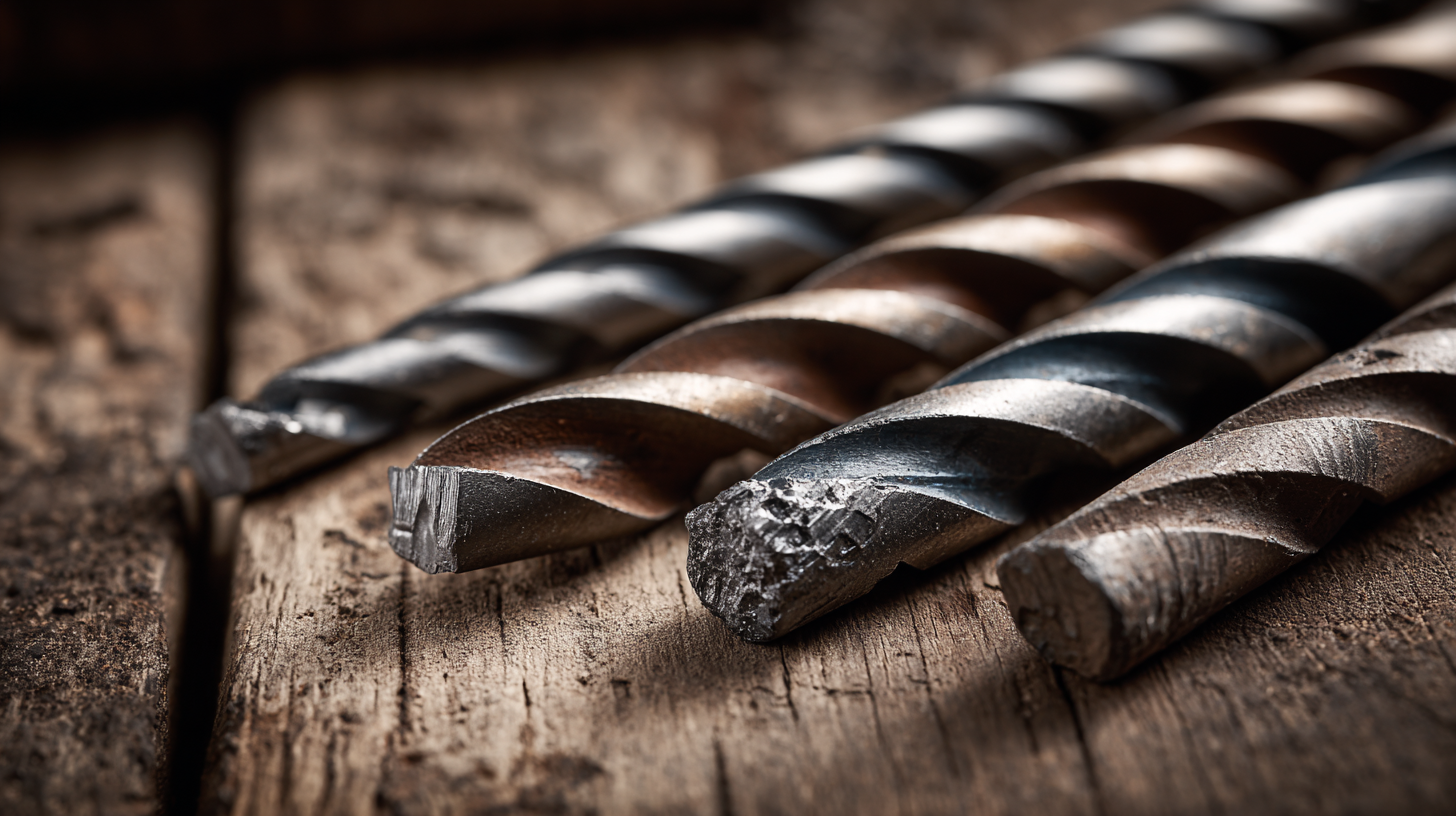
In the construction industry, the selection of drill bits significantly influences efficiency and material compatibility for various applications. The global market for mining drill bits was valued at approximately USD 1.88 billion in 2024 and is expected to grow to USD 2.67 billion by 2035. This growth reflects the increasing demand for specialized drill bits tailored for different materials and operational environments. For instance, advancements in technologies, such as the development of percussive-enhanced drilling, have revolutionized approaches in geothermal drilling, optimizing both performance and cost-effectiveness.
Different types of drill bits serve distinct purposes in construction, with applications ranging from drilling into metal, concrete, to specialized geological formations. In 2025, the oil field drill bits market is forecasted to show notable growth, highlighting continued innovations aimed at enhancing drilling efficiency. This sector specifically benefits from roller cone and PDC drill bits designed to handle unique challenges within oil and gas extraction scenarios. As drill bit technology evolves, it is critical for construction professionals to stay informed about the latest advancements and market trends that directly impact their material selection and project efficiency.
| Drill Bit Type | Material Suitability | Application | Efficiency Rating |
|---|---|---|---|
| Twist Drill Bit | Wood, Metal, Plastic | General Purpose Drilling | 8/10 |
| Hammer Drill Bit | Concrete, Masonry | Heavy-Duty Drilling | 9/10 |
| Masonry Drill Bit | Brick, Stone | Masonry Applications | 8/10 |
| Step Drill Bit | Sheet Metal, Plastic | Creating Large Holes | 7/10 |
| Core Drill Bit | Concrete, Asphalt | Core Sampling | 9/10 |
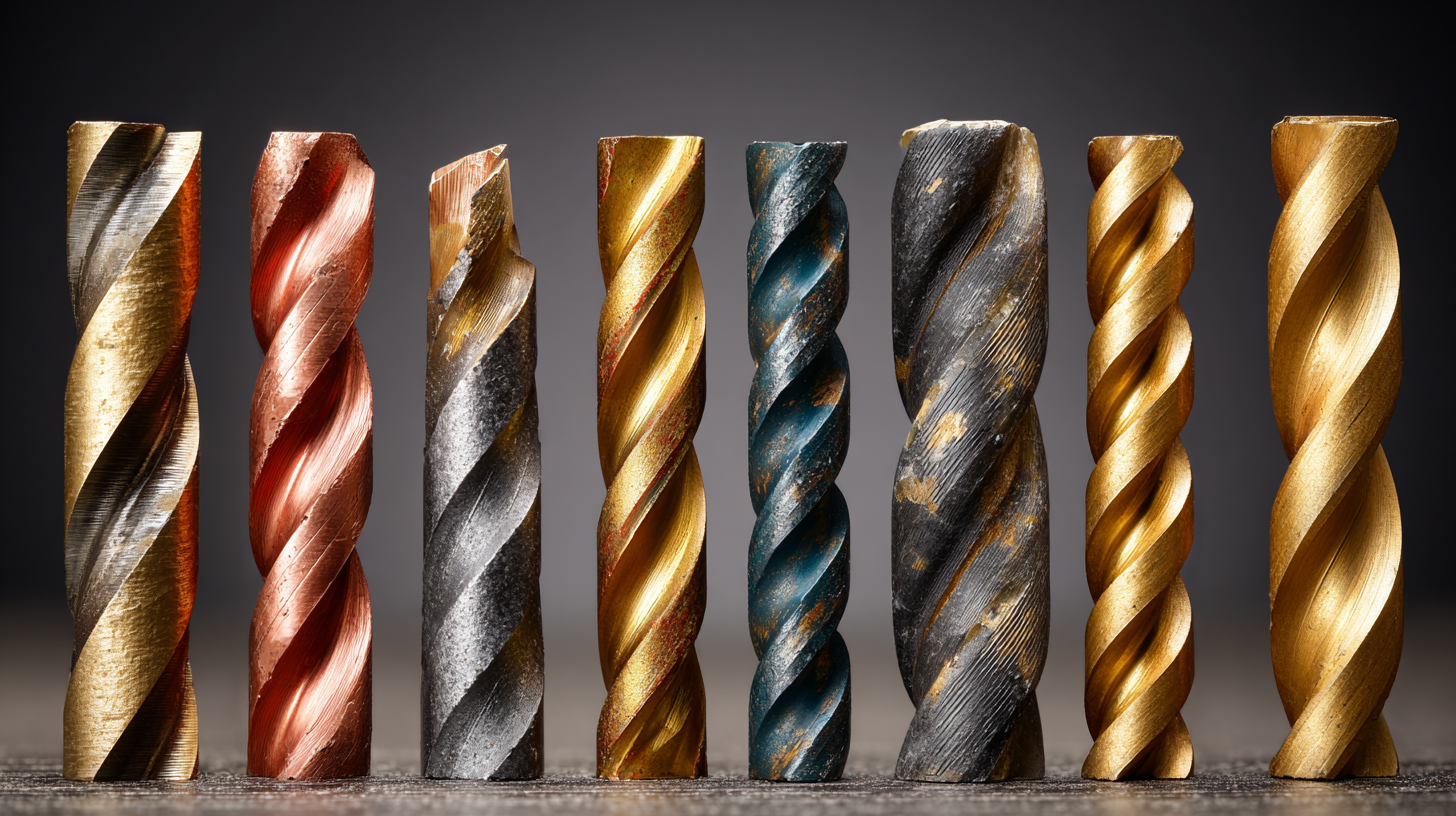 When it comes to construction, the choice of drill bit material can significantly affect overall performance. Different materials, such as carbide, high-speed steel, and diamond, offer varying levels of durability, cutting efficiency, and suitability for specific applications. For instance, carbide bits provide a longer lifespan and are ideal for hard materials, while high-speed steel bits are better for softer substrates. Understanding these differences allows professionals to select the right tool for the job, enhancing both efficiency and output quality.
When it comes to construction, the choice of drill bit material can significantly affect overall performance. Different materials, such as carbide, high-speed steel, and diamond, offer varying levels of durability, cutting efficiency, and suitability for specific applications. For instance, carbide bits provide a longer lifespan and are ideal for hard materials, while high-speed steel bits are better for softer substrates. Understanding these differences allows professionals to select the right tool for the job, enhancing both efficiency and output quality.
Tip: Always consider the material of the surface you'll be drilling into. Choosing a drill bit specifically designed for that material can save time and prevent damage to both the drill and the substrate.
Moreover, the performance of drill bits extends beyond just the material. Factors such as the bit's design, coating, and size can also contribute to construction efficiency. The right design can optimize cutting speeds and reduce friction, leading to cleaner holes and minimized wear on the bit.
Tip: Regularly inspect your drill bits and replace them as necessary. Dull bits increase resistance and can lead to errors, so maintaining sharp, high-quality tools is crucial for sustaining productivity on construction sites.
When it comes to construction efficiency, the type of drill bit used can significantly impact the overall performance of the project. Conventional drill bits, while widely available and suitable for basic drilling tasks, tend to fall short in specialized applications. They can create unnecessary delays, especially when dealing with harder materials or specific design requirements. In contrast, specialized drill bits are designed for particular tasks, enabling faster drilling speeds and more precise finishes, which ultimately streamlines the construction process.
**Tips:** When selecting a drill bit, consider the material you’re working with. If you’re drilling through reinforced concrete, for instance, a masonry bit would be ideal. Additionally, using the correct type of bit can reduce wear on your tools, saving time and replacement costs in the long run.
Moreover, using specialized drill bits can also enhance safety on the job site. Fewer breakages mean reduced risks of injury from flying debris and less time spent on repairs. It is crucial to match the drill bit to the task at hand; for example, a spade bit is best for wood, while a tungsten carbide tip is perfect for metal applications.
**Tips:** Always maintain your drill bits to ensure longevity and performance. Regularly check for dullness or wear and replace them as needed to maintain efficiency.
The selection of drill bits is crucial for optimizing construction efficiency, particularly when it comes to different materials. Various factors come into play when determining which drill bit to use, and understanding these can significantly impact the overall performance of a project. Firstly, the material's hardness must be considered; for softer materials like wood, standard twist drill bits may suffice, whereas for harder materials such as steel or concrete, more specialized bits, like carbide-tipped or masonry bits, are required to ensure effective penetration without causing damage.
Another critical factor is the type of drill being used. The power and torque capabilities of the drill not only influence the choice of bit but also determine the effectiveness of the drilling process. Additionally, the size and type of hole desired play a significant role in bit selection. For instance, larger holes necessitate different bits such as hole saws or augers, while precision work may require smaller bits with finer tips. Lastly, the presence of specific coatings on drill bits, such as titanium or black oxide, can enhance durability and decrease friction, further influencing material selection and overall drilling efficiency.
The evolution of innovative drill bit technologies has significantly influenced construction efficiency and material selection. Advanced materials such as high-speed steel, carbide, and diamond composites have emerged, enhancing the drilling process under various site conditions. These materials not only increase the durability and lifespan of drill bits but also improve cutting performance, leading to faster penetration rates and reduced energy consumption. Specifically, diamond-coated bits are gaining popularity in applications requiring precise drilling in hard materials, thereby minimizing downtime and enhancing overall project timelines.
Additionally, the development of specialized drill bit designs tailored for specific applications has revolutionized the construction industry. Features such as spiral flutes for efficient debris removal, adjustable on-site diameter modifications, and vibration-reduction technologies allow for more control over drilling processes. These innovations not only optimize the drilling efficiency but also contribute to better material selection as construction teams can choose the most appropriate bit for the task at hand. This synergy between technology and efficiency ultimately promotes cost savings and ensures higher quality outcomes in construction projects.
